-
 Bitcoin
Bitcoin $120400
1.77% -
 Ethereum
Ethereum $3615
7.90% -
 XRP
XRP $3.580
17.84% -
 Tether USDt
Tether USDt $1.001
0.06% -
 BNB
BNB $729.4
1.25% -
 Solana
Solana $179.9
5.04% -
 USDC
USDC $0.0000
0.01% -
 Dogecoin
Dogecoin $0.2311
8.22% -
 TRON
TRON $0.3226
4.04% -
 Cardano
Cardano $0.8490
12.85% -
 Hyperliquid
Hyperliquid $46.45
0.72% -
 Stellar
Stellar $0.4913
8.54% -
 Sui
Sui $4.027
2.00% -
 Chainlink
Chainlink $18.51
11.67% -
 Hedera
Hedera $0.2818
21.51% -
 Avalanche
Avalanche $24.03
7.40% -
 Bitcoin Cash
Bitcoin Cash $508.5
2.90% -
 Shiba Inu
Shiba Inu $0.00001496
3.24% -
 UNUS SED LEO
UNUS SED LEO $8.961
1.83% -
 Toncoin
Toncoin $3.264
3.13% -
 Litecoin
Litecoin $104.6
8.15% -
 Polkadot
Polkadot $4.389
6.11% -
 Uniswap
Uniswap $9.924
10.63% -
 Monero
Monero $337.9
0.49% -
 Pepe
Pepe $0.00001376
2.79% -
 Bitget Token
Bitget Token $4.830
2.46% -
 Ethena USDe
Ethena USDe $1.001
0.05% -
 Dai
Dai $1.000
0.02% -
 Aave
Aave $325.2
1.66% -
 Bittensor
Bittensor $423.7
-0.85%
is metamask wallet a cold wallet
MetaMask, a convenient hot wallet, prioritizes accessibility over the offline security of cold wallets like Ledger and Trezor. While offering seamless dApp integration, its online nature increases vulnerability to hacking; thus, users should prioritize strong passphrases and 2FA.
Mar 24, 2025 at 11:00 pm
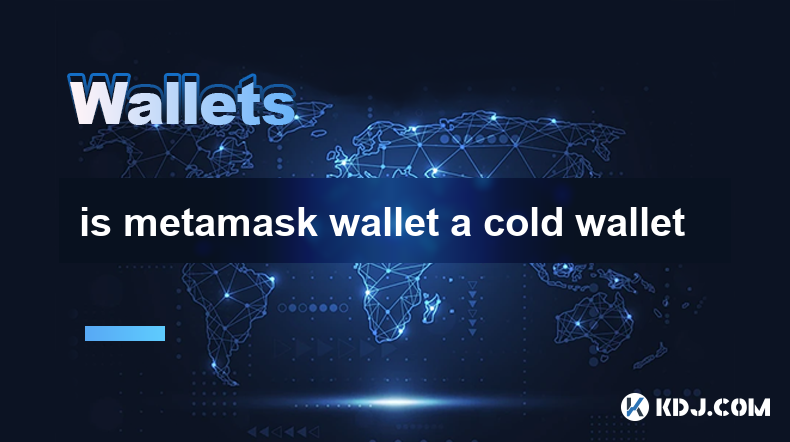
Key Points:
- MetaMask is not a cold wallet. It's a software wallet, specifically a hot wallet.
- Cold wallets prioritize security by storing private keys offline.
- Hot wallets, like MetaMask, are convenient but more vulnerable to hacking.
- Understanding the difference is crucial for securing your cryptocurrency.
- Alternatives to MetaMask for increased security exist, but involve trade-offs in convenience.
Is MetaMask Wallet a Cold Wallet?
No, MetaMask is emphatically not a cold wallet. MetaMask is a popular software wallet, and as such, it's categorized as a hot wallet. The crucial distinction lies in how private keys – the secret codes granting access to your cryptocurrency – are stored. Cold wallets keep these keys offline, making them significantly more secure against online threats like phishing attacks and malware. MetaMask, being a browser extension or mobile app, stores your keys on your connected device, making it inherently vulnerable to online risks.
Understanding Hot and Cold Wallets
Cold wallets are hardware devices designed specifically for cryptocurrency storage. They often resemble USB drives. Their offline nature makes them highly resistant to hacking attempts targeting online systems. Examples include Ledger and Trezor. Hot wallets, conversely, are software-based solutions. They offer ease of access and integration with decentralized applications (dApps), but their online nature makes them susceptible to various security breaches. MetaMask falls squarely into this category.
Security Implications of Using MetaMask
The convenience of MetaMask, its integration with various blockchain networks and its user-friendly interface are undeniable advantages. However, using MetaMask means accepting a higher level of risk compared to using a cold wallet. Your private keys are stored on your device, which could be compromised by malware, phishing scams, or even a compromised operating system. This vulnerability is the fundamental difference between a hot and cold wallet.
How to Increase Security with MetaMask
While MetaMask isn't a cold wallet, several steps can mitigate the risks:
- Strong Passphrase: Use a long, complex, and unique passphrase. Avoid easily guessable information.
- Two-Factor Authentication (2FA): Enable 2FA whenever possible to add an extra layer of security.
- Regular Software Updates: Keep your MetaMask extension and your device's operating system updated to patch security vulnerabilities.
- Beware of Phishing: Be extremely cautious of suspicious websites or emails requesting your seed phrase or passphrase. MetaMask will never ask for this information.
- Limit Funds: Only keep the cryptocurrency you need for immediate transactions in your MetaMask wallet. Store larger amounts in a cold wallet.
Alternatives to MetaMask for Enhanced Security
If security is your paramount concern, consider alternatives that offer cold storage solutions. Hardware wallets like Ledger and Trezor provide a much higher level of security. However, remember that these options require a steeper learning curve and may not offer the same seamless integration with dApps as MetaMask.
The Role of Seed Phrases in Wallet Security
Your seed phrase is a critical element in securing your cryptocurrency, regardless of the wallet type. It's a list of words that acts as the master key to your wallet. Losing or compromising your seed phrase means irreversible loss of access to your funds. Treat your seed phrase with the utmost secrecy. Never share it with anyone, and always store it securely offline.
Choosing the Right Wallet: Convenience vs. Security
The choice between a hot wallet like MetaMask and a cold wallet depends on your priorities. MetaMask provides ease of use and convenient access, making it ideal for frequent transactions. However, its security risks are higher. Cold wallets offer significantly improved security but are less convenient. Consider your individual needs and risk tolerance when making your decision.
Frequently Asked Questions
Q: Can I use MetaMask for large amounts of cryptocurrency?
A: While you can, it's generally not recommended to store large amounts of cryptocurrency in a hot wallet like MetaMask due to the increased security risk. Consider using a cold wallet for significant holdings.
Q: What happens if I lose my MetaMask seed phrase?
A: Losing your seed phrase means irreversible loss of access to your funds. There's no recovery mechanism. This applies to all wallets, not just MetaMask.
Q: Is it safe to use MetaMask on public Wi-Fi?
A: It's not recommended. Public Wi-Fi networks are less secure and increase your vulnerability to man-in-the-middle attacks.
Q: How can I tell if a website is trying to phish my MetaMask information?
A: Legitimate websites will never ask for your seed phrase or private keys. Be wary of suspicious websites, especially those requesting this information. Verify the website's legitimacy before interacting with it.
Q: What are the advantages of a cold wallet over a hot wallet?
A: Cold wallets offer significantly higher security due to their offline nature, making them less susceptible to hacking and malware. They are the preferred option for storing significant amounts of cryptocurrency.
Q: What are some examples of reputable cold wallets?
A: Ledger and Trezor are two of the most widely used and respected hardware wallets in the cryptocurrency space. They offer robust security features and are designed to protect your private keys.
Disclaimer:info@kdj.com
The information provided is not trading advice. kdj.com does not assume any responsibility for any investments made based on the information provided in this article. Cryptocurrencies are highly volatile and it is highly recommended that you invest with caution after thorough research!
If you believe that the content used on this website infringes your copyright, please contact us immediately (info@kdj.com) and we will delete it promptly.
- Bitcoin, Cloud Mining, Crypto Wealth: Riding the Bull Run in Style
- 2025-07-18 12:30:12
- Ethereum Gas Fees, ERA Airdrop: A New Yorker's Take on Crypto Chaos
- 2025-07-18 12:50:12
- Bitcoin, Altcoins, and the Crypto Market: Navigating Trump's Crypto Ventures and the Evolving Digital Landscape
- 2025-07-18 12:50:12
- Bitcoin Holdings and the Smarter Web: A Match Made in Digital Heaven?
- 2025-07-18 12:10:12
- Bitcoin, MSTR & Saylor's Strategy: A Winning Trifecta?
- 2025-07-18 08:30:13
- Bitcoin Mortgages Down Under: A New Wave in Australian Homeownership?
- 2025-07-18 08:50:12
Related knowledge
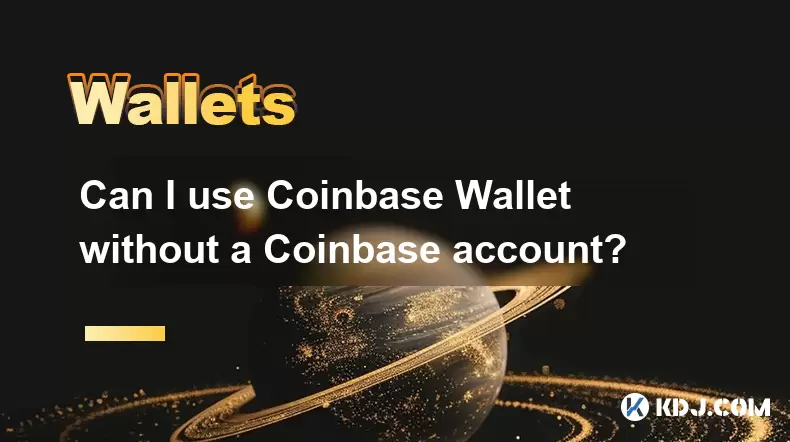
Can I use Coinbase Wallet without a Coinbase account?
Jul 18,2025 at 04:35am
What is Coinbase Wallet?Coinbase Wallet is a self-custodial wallet that allows users to store, send, and receive various cryptocurrencies directly on ...
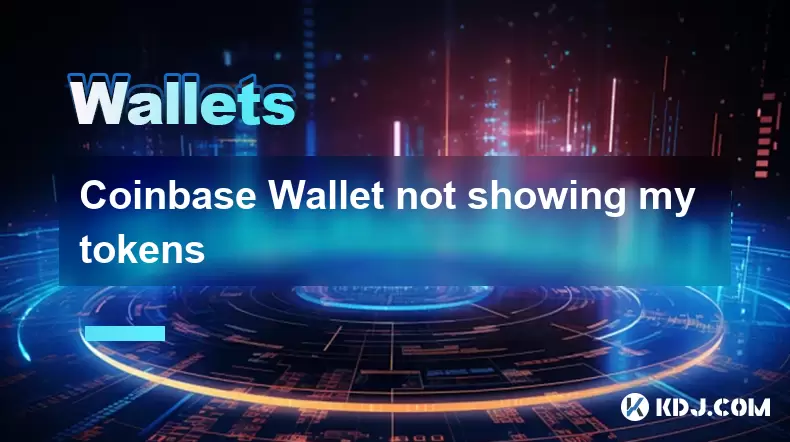
Coinbase Wallet not showing my tokens
Jul 18,2025 at 09:49am
Understanding Coinbase Wallet Token Display IssuesIf you're experiencing issues where Coinbase Wallet not showing my tokens, it can be frustrating, es...
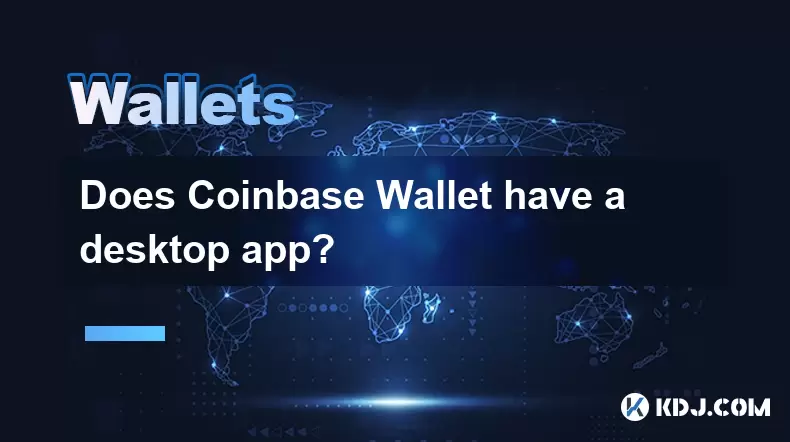
Does Coinbase Wallet have a desktop app?
Jul 18,2025 at 12:08am
Understanding Coinbase Wallet and Its Core FeaturesCoinbase Wallet is a non-custodial cryptocurrency wallet developed by Coinbase, one of the leading ...
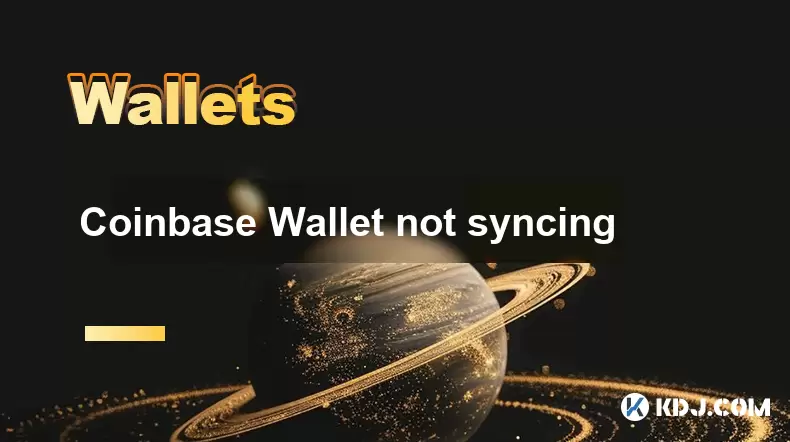
Coinbase Wallet not syncing
Jul 18,2025 at 07:49am
Understanding Coinbase Wallet Syncing IssuesWhen users encounter problems with Coinbase Wallet not syncing, it typically means that the wallet is unab...
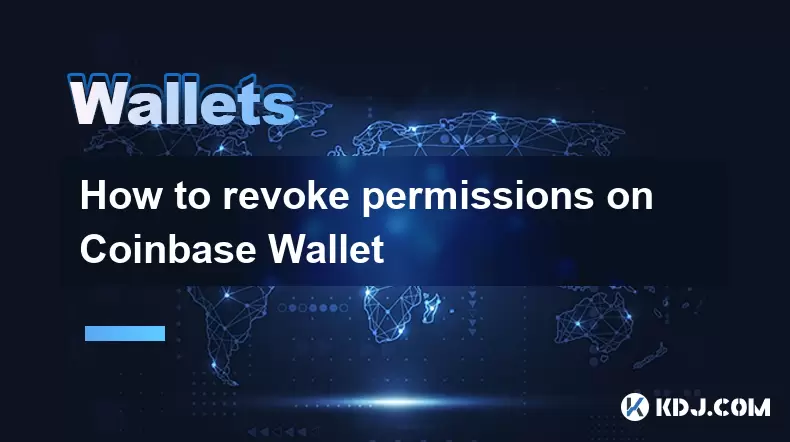
How to revoke permissions on Coinbase Wallet
Jul 18,2025 at 02:00am
What Does It Mean to Revoke Permissions on Coinbase Wallet?In the context of Coinbase Wallet, revoking permissions refers to removing access that dece...
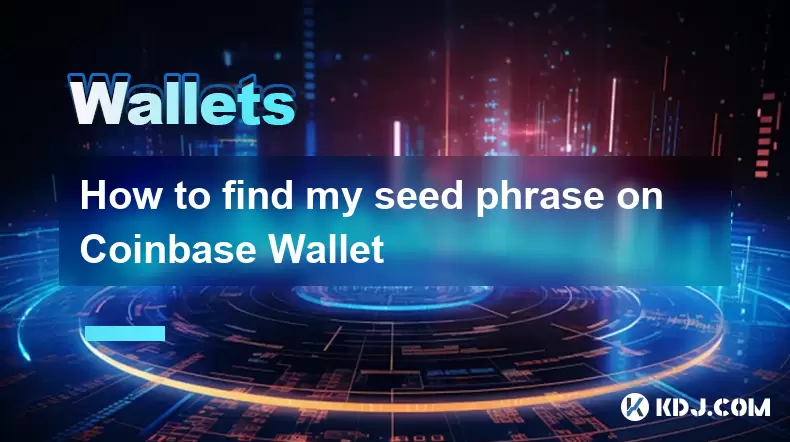
How to find my seed phrase on Coinbase Wallet
Jul 18,2025 at 01:50am
What is a Seed Phrase in Cryptocurrency?A seed phrase, also known as a recovery phrase, is a list of words (usually 12 or 24 words) that serves as a b...

Can I use Coinbase Wallet without a Coinbase account?
Jul 18,2025 at 04:35am
What is Coinbase Wallet?Coinbase Wallet is a self-custodial wallet that allows users to store, send, and receive various cryptocurrencies directly on ...

Coinbase Wallet not showing my tokens
Jul 18,2025 at 09:49am
Understanding Coinbase Wallet Token Display IssuesIf you're experiencing issues where Coinbase Wallet not showing my tokens, it can be frustrating, es...

Does Coinbase Wallet have a desktop app?
Jul 18,2025 at 12:08am
Understanding Coinbase Wallet and Its Core FeaturesCoinbase Wallet is a non-custodial cryptocurrency wallet developed by Coinbase, one of the leading ...

Coinbase Wallet not syncing
Jul 18,2025 at 07:49am
Understanding Coinbase Wallet Syncing IssuesWhen users encounter problems with Coinbase Wallet not syncing, it typically means that the wallet is unab...

How to revoke permissions on Coinbase Wallet
Jul 18,2025 at 02:00am
What Does It Mean to Revoke Permissions on Coinbase Wallet?In the context of Coinbase Wallet, revoking permissions refers to removing access that dece...

How to find my seed phrase on Coinbase Wallet
Jul 18,2025 at 01:50am
What is a Seed Phrase in Cryptocurrency?A seed phrase, also known as a recovery phrase, is a list of words (usually 12 or 24 words) that serves as a b...
See all articles

























































































